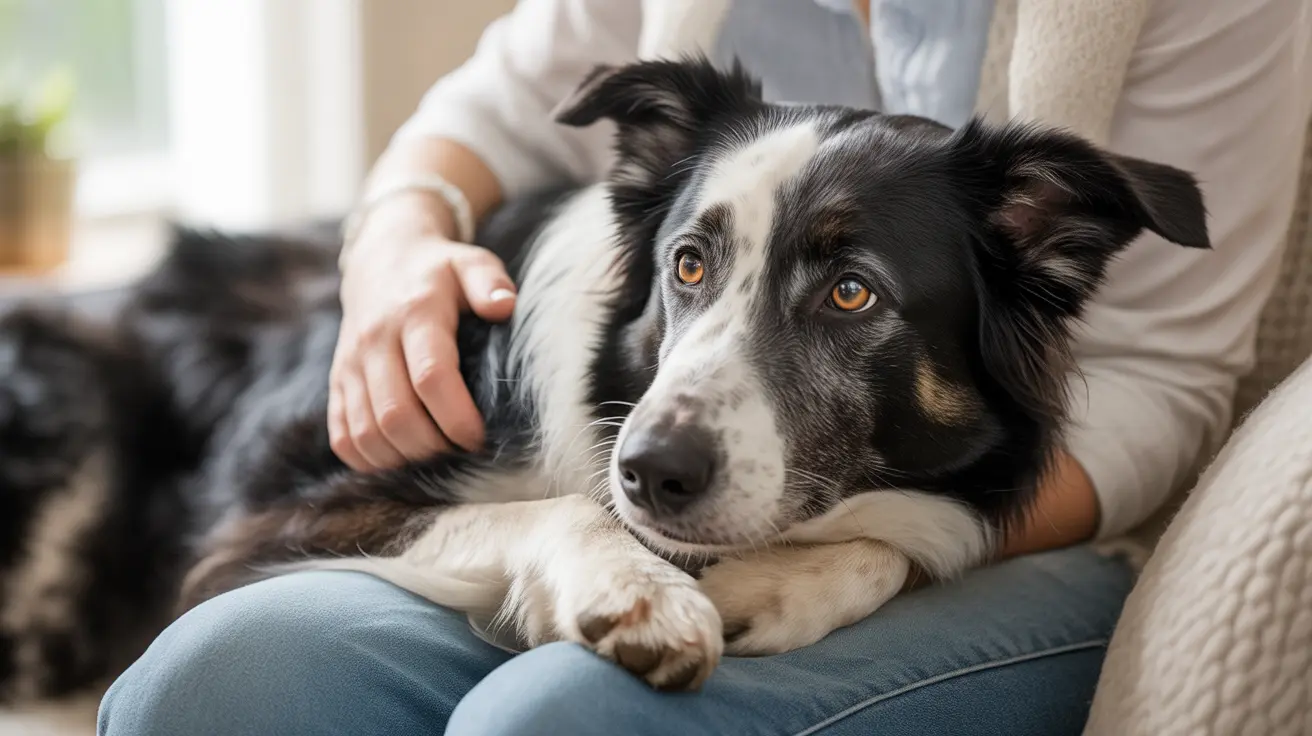Have you ever wondered why your dog loves to lay on you? This endearing behavior is more than just a cute habit - it's deeply rooted in your dog's instincts, emotions, and the special bond they share with you. Let's explore the fascinating reasons behind this common canine behavior and what it reveals about your relationship with your four-legged friend.
From evolutionary pack behavior to modern-day companionship, dogs have numerous motivations for seeking close physical contact with their human family members. Understanding these reasons can help you better appreciate and respond to your dog's needs while strengthening your bond.
The Pack Mentality and Bonding Instinct
Dogs are naturally social creatures with strong pack instincts inherited from their wolf ancestors. When your dog lays on you, they're expressing their view of you as a valued pack member. This behavior releases oxytocin - often called the "love hormone" - in both you and your dog, reinforcing your emotional connection.
Research shows that physical contact between dogs and their owners can reduce stress levels and promote emotional well-being for both parties. This natural bonding mechanism has evolved over thousands of years of human-canine companionship.
Comfort and Security Seeking
Your dog may choose to lay on you as a way to feel safe and protected. This behavior is particularly common during thunderstorms, fireworks, or other stressful situations. By maintaining close physical contact, dogs can better regulate their body temperature and feel more secure in their environment.
Some breeds are especially prone to seeking this type of comfort, with many sporting and companion breeds showing a stronger tendency to maintain physical closeness with their owners.
Communication Through Physical Contact
Dogs often use physical contact as a form of communication. When they lay on you, they might be trying to tell you something important. This could range from seeking attention or expressing affection to alerting you about potential health concerns - either theirs or yours.
Studies have shown that dogs can detect subtle changes in human body chemistry, sometimes identifying health issues before their owners are aware of them. This remarkable ability may influence their tendency to lay close to or on top of their humans.
Territorial Marking and Protection
When your dog lays on you, they may also be engaging in a form of scent marking. By pressing their body against yours, they're leaving their scent on you, effectively claiming you as part of their territory. This behavior often increases after exposure to other animals or new people.
Additionally, many dogs display protective instincts by positioning themselves on or near their owners, especially during rest or sleep. This protective behavior stems from their natural pack mentality and desire to keep their family safe.
Frequently Asked Questions
Why does my dog lay on me all the time?
Dogs lay on their owners frequently due to a combination of seeking affection, maintaining pack bonds, and feeling secure. This behavior is typically healthy and shows strong attachment to you as their caregiver.
How can I encourage my dog to be more affectionate and snuggle with me?
Create positive associations with physical closeness through gentle praise, treats, and regular bonding activities. Respect your dog's boundaries and let them approach you on their terms while maintaining a consistent, loving presence.
Is it normal if my dog becomes overly attached and wants to be on me constantly?
While some attachment is normal, excessive clinginess might indicate separation anxiety. If your dog shows signs of distress when apart from you, consider consulting a professional trainer or behaviorist.
What are some signs that my dog's behavior of lying on me could be linked to anxiety or health issues?
Watch for changes in behavior patterns, excessive panting, trembling, or unusual persistence in staying close. Other warning signs include destructive behavior when separated or physical symptoms like lethargy or changes in appetite.
How can I balance my dog's need for closeness with maintaining their independence?
Establish a routine that includes both quality time together and independent activities. Provide comfortable spaces for your dog to rest alone, encourage positive separation experiences, and reward confident, independent behavior.
Conclusion
Your dog's habit of laying on you is a beautiful expression of trust, affection, and the deep bond you share. While this behavior is generally positive, it's important to maintain healthy boundaries and watch for signs of excessive dependency. By understanding and appropriately responding to this natural behavior, you can foster a balanced, fulfilling relationship with your canine companion.






